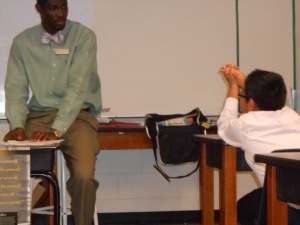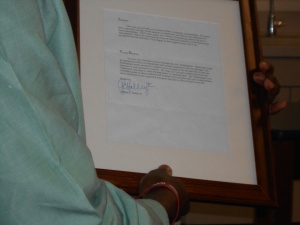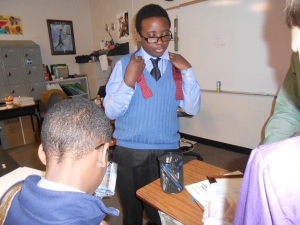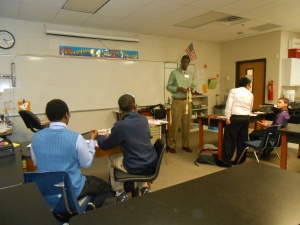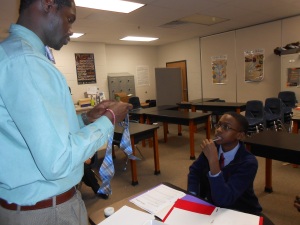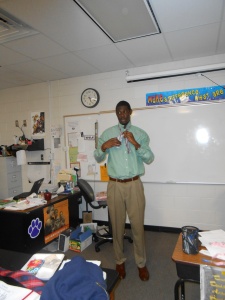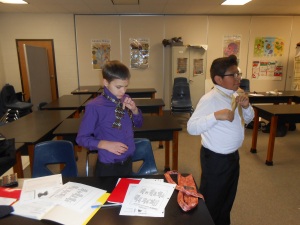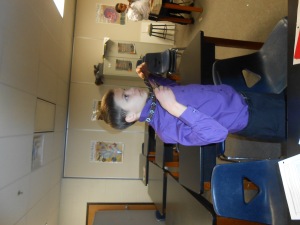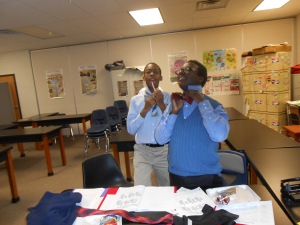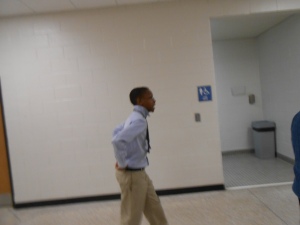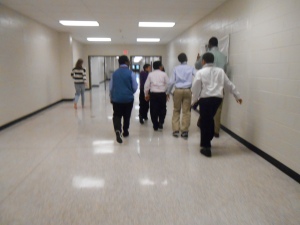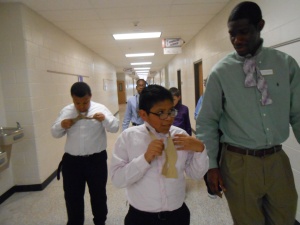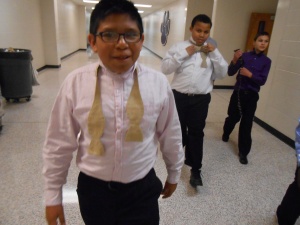Thought for the Day…
If you are not actively engaged in efforts and progressive actions that will help us as a community, especially for our younger generation, we will continue to allow others to mistreat, degrade, and disenfranchise our people.
Start by doing the smallest you can do…
- Steer away from negative energy. Stop thinking negatively and taking negative actions that impact your well-being, your family, your cominity and our ancesters.
- Stop worrying about things that are beyond your control and concentrate on what you can do.
- Stop thinking negatively and taking negative actions that impact your well-being, your family, your community, and our ancestors.
- Have respect for your self and others; does not necessarily mean you have to be friends with everyone, but you can, at least, be cordial and courteous. Greet one another, wave, say ‘Hello’.
Steps as simple these may, to some, seem easier said than done and to others, it may seem like not enough; maybe I’m just stating the obvious. However, as a community, we don’t do enough of these. We don’t uplift our brothers and sisters, and we don’t empower one another. We degrade each other with B***, H***, N**** or the amalgamation of a number of epithets such as, “B**** Ass N***”, which, I guess, would be the lowest degradation of a N***** (which would further imply that among Blacks there’s a heirarchy of N*****s, a heirarchy within the lowliest classification on the social stratum. Sounds ludicrous, huh?).
All I’m saying is, there are so many manifestations of subconscious self-hatred that we inflict upon ourselves and to one another; so much, in fact, that we basically “welcome” others to treat us similarly. We get degraded, ridiculed, stepped on, spit on and pushed down by society because we have exhibited such malicious and self-destructive behavior amongst our own people. Maybe if we begin to treat each other with more dignity and respect; treat one another as brothers and sisters with a common struggle, a common legacy, common ancestors, and a common future, maybe we’ll finally begin to see ourselves as the kings and queens we are; and, our strong sense of pride and committment to the betterment of our community will be respected and recognized by the world at large. Dedicate each day to doing something positive, productive, and progressive that will indubitably radiate your influence.
The Journey Continues…
I considered our 2011-12 fraternal year my best year. The bond I created with a few of those young bros was amazing. Because some of these young men had more troubled backgrounds than guys I’ve previously brought into the bond, I opened myself up a lot more. With these guys, I found that our struggles were similar; not the same, but painfully similar. I knew that the only way I could connect Continue reading →
Excerpts and Thoughts from “The Talented Tenth” by W.E.B. DuBois
I became familiar with DuBois “Talented Tenth” ideaology back in college and since I was, at the time, a so-called “college-bred” Black man who could not relate to strives of making a living with my hands, DuBois’ philosophy resonated with me quite loudly. However, as I began to grow into my own thoughts on social and educational upliftment for African-Americans, I began to see this piece as exceptional in theory, but overly ambitious and short-sighted in practice. DuBois contends that the small college-educated Black men were to serve as the vanguards for the masses, to teach, mold, train and uplift the rest. Again, I agree with this philosophy in theory; my issue was that this certainly wasn’t and still isn’t the case in reality. Our college-educated are NOT giving back. We are not working tirelessly to empower the masses, to reach down and pull up another brother or sister. We obtain our big, fancy college degrees, move off to the suburbs, have a family and shake our heads in shame at those who couldn’t acquire the same for themselves. The more I grew conscious of jobless rates of Black men and waves of Hispanics and Asians who are moving to this country building stable lives for themselves by learning trades and starting businesses, I began to align myself more with the Washingtonian ideaology. Don’t get me wrong: Washington, to me, goes down in history as an advocator of silent submission to injustice; in other words, an “Uncle Tom”, but still, his advocacy for economic empowerment, self-sufficiency and autonomy is exactly what our community is lacking. More on my views of Booker T. Washington later in another post.
Anyways, I decided to re-read “The Talented Tenth” and I have a newfound understanding and appreciation for it. I totally agree DuBois on much of it, but I also believe Washington was onto something as well. After reading it, here are some of the most profound statements I came across:
[On the goal of education]
“Education is that whole system of human training within and without house walls, which molds and develops men.”
In other words, education should be holistic. It should cater to the mind, body and soul of the student, and do more than prepare our youth to be master test-takers and even more than prepare our kids for college; education, at its best, should give our students the tools and confidence to be positive, productive, and purposeful citizens who are committed to the betterment of their respective communities.
[On the demand for positive role models]
To furnish five millions and more of ignorant people with teachers of their own race and blood, in one generation, was not only a very difficult undertaking, but a very important one, in that, it placed before the eyes of almost every Negro child an attainable ideal. It brought the masses of the Blacks in contact with modern civilization, made Black men the leaders of their communities and trainers of the new generation.”
Every single one of is, college degree or not, should be obligated to serve our communities positively and responsibly, so that, in turn, we provide the younger generation with a standard of morale, responsibility, and integrity. We should train those in our communities to be leaders so that in our inevetibale demise, our “heirloom”, or legacy, if you will, will be the inheritance of those same ideals catalyzing the procreation of another generation stand-up men and women.
[On the education of the college-bred Black man]
“…He is, as he ought to be, the group leader, the man who sets the ideals of the community where he lives, directs its thoughts and heads its social movements.” A leader is a visionary is sets the example and paves the road to follow.
[on the role of manual training in the Black community]
“I believe that next to the founding of Negro colleges the most valuable addition to Nefor education since the war, has been industrial training for Black boys. Nevertheless, I insist that the object of all true education is not to make men carpenters, it is to make carpenters men.”
The last line of this quote is extremely moving. This is a direct charge at Washington’s postulation that manual labor is the best means of progression for the Black man.
“Men of America, the problem is plain before you. Here is a race transplanted through the criminal foolishness of your fathers. Whether you like it or not the millions are here, and here they will remain. If you do not lift them up, they will pull you down. Education and work are levers to uplift a people. Work alone will not do it unless inspired by the right ideals and guided by intelligence. Education must not simply teach work–it must teach Life. The Talented Tenth of the Negro race must be made leaders of thought and missionaries of culture among their people. No others can do this work and Negro colleges must train men for it. The Negro race, like all other races, is going to be saved by its exceptional men.”
I’ll leave you with this. He Ain’t Heavy by Donny Hathaway http://www.youtube.com/watch?v=7HFDAp8XVrk
Lyrics:
The road is long
With many a winding turn
That leads us to who knows where
Who knows where
But I am strong enough to carry him
He ain’t heavy, he’s my brother
So on we go
His welfare is my concern
No burden is he to bear
We’ll get there
For I know he will not encumber me
He ain’t heavy, he’s my brother
If I’m laden at all
I’m laden with sadness
That everyone’s heart
Is not filled with gladness
Of love for one another
Thank you, Lord
Said it’s a long…
I said it’s a long…
Heyyy, it’s a long, hard road
From which there is no return
While we’re on the way to there
Why not share?
And the load
Doesn’t weigh, doesn’t weigh me down at all
He ain’t heavy, he’s my brother
He ain’t heavy, he’s my brother
“Farewell to the British People”, March 30, 1847
I do not go back to America to sit still, remain quiet, and enjoy ease and comfort. . . . I glory in the conflict, that I may hereafter exult in the victory. I know that victory is certain. I go, turning my back upon the ease, comfort, and respectability which I might maintain even here. . . Still, I will go back, for the sake of my brethren. I go to suffer with them; to toil with them; to endure insult with them; to undergo outrage with them; to lift up my voice in their behalf; to speak and write in their vindication; and struggle in their ranks for the emancipation which shall yet be achieved.
—-FAREWELL TO THE BRITISH PEOPLE, March 30, 1847
My young bros and I recently finished up reading Douglass’ first autobiography, “Narratives in the Life of Fredrick Douglass” and I was doing some extra research on him, particulary his old speeches, to bring into the study group discussion in the study group for the following week [Again, we meet twice a week. Tuesdays are book study meetings or biographical leader study, and Wednesdays are our normal body meetings]. I think the above quote is one of the most powerful messages I’ve ever read and is giving me goosebumps as I type this. In this quote I can hear Fred Hampton, Huey Newton and the Black Panther Party; I hear Malcolm X, Martin Luther King, Jr., and Medgar Evers; hell, I even hear Public Enemy, Tupac and Common, especially what I consider my personal theme song, “The People.
For Common’s, “The People” official video, click here —->>>http://youtu.be/S7B2VgRShew
I guess what I’m saying is Douglass is a father to us all–all that are committed to empowering others in our schools, churches, community and grassroots organizations, and any other facet of society that works tirelessly for the upliftment of a people.
Lessons from Douglass/Principles of Success
* Understanding that the proper use of power is to help others.
* Giving up something you want in order to help someone else.
* Learning how to challenge and overcome doubt.
* Understanding why and how to control the human ego.
* Doing what is right and proper without delay, even if no one is looking.
* Learning how to use knowledge and understanding wisely.
* Overcoming indecisiveness by developing proper organizational skills.
* Making gratitude a part of every thought and action.
* Practicing the skill of listening before making judgments.
* Remaining true to your word.
* Practicing the art of giving without expecting something in return.
* Recognizing that success is as much a motivation to others as to you.
The above bullets are By Author Fred Morsell
Fremarjo Enterprises, Inc.
The Great Liberator, The Little Giant
Sophistication and Class–The Bowtie
Just to give you a real quick update since my last post, February was a very busy month for us. I didn’t really do much Black History Month stuff because I feel practically everything we do is somehow tied back to the appreciation of our history. Not to undermine the month, but I do BHM stuff all year long.
Now, I’ve spent a great deal of weekend time with my young bros before, but this was the first time we did like a “Shakespeare Weekend Camp”-type of thing. Needless to say, I was painfully exhausted. We didn’t have school on that Friday so we basically spent the ENTIRE day together. That morning, starting at around 8, we made our journey down to Clark-Atlanta Univ. to visit their art gallery, but we actually walked in on the opportunity of an official campus visit. The best part about the visit was that it was during school hours, so we saw the hustle of students going to and from class; we saw the hang-out spots on the CAU’s “Promenade” Walk; it was Alpha Week so we saw the bros stepping out in front of the student center. They were truly welcomed into a microcosm of what campus life is like, at least on the campus of an HBCU. CAU’s gallery was interesting, to say the least. The tour guide gave them a thorough tour from the lens of “our” history. Many of the themes we saw expressed in paint, were the same historical lessons I was giving them in our meetings. It was good to actually see an artistic expression of the trauma Sarah Baartman experienced, a story I taught them for them so they’ll better understand why we should appreciate, not denigrate, our Black women. Not to dwell any further, we left CAU and went straight to the Atlanta HIGH Museum to study one of my favorite artists, Frida Kahlo. This was to give them a different cultural experience to broaden their perspectives on art, and even their place in the world as young men of color. We examined artwork of Frid, her husband Diego and the works of contemporary artists like Radcliff Bailey, Elizabeth Catlett, Thornton Dial, Picasso, etc. I created a tour guide for them where they had to list the titles and artist names for 10 pieces, followed by a ranking system on a scale of 1-4 with 4 meaning “liked it a lot” and 1 being “I’m not feelin’ this at all.” This allowed them to really examine the artwork from an analytical and appreciative standpoint as opposed to wondering around the halls of the gallery aimlessly.
After the HIGH, we found ourselves at the UniverSoul Circus, the world’s only African-American circus. After gut-wrenching laughs, sugar-highs, “stanky legs”, lean-wit-it-rock-wit-it, and swag surfin’, we called it a night about 11 pm to only get up the following day to go to Monster Jam, an experience neither of us ever had before. Aside from all the fun, one thing stood out in my head–while at CAU, the bros expressed an interest in wearing bowties. I remember I was wearing one that day, and I think we may have run across a couple CAU students who were also neatly dressed in the bow. I made it my mission to solicit funds and/or donations to acquire them some bowties. It took me faster than I expected, but thanks to the outlet of social media, I had the bowties within 2 weeks. I had a couple Facebook friends donate money to the cause, and I have a cousin, a Morehouse grad, who actually donated ties from his personal collection. After a brief history, I mentioned some notable Black men who were often seen suited in a man’s most formal wardrobe piece, the bowtie: men like Malcolm X and the Black Muslims, W.E.B. DuBois, sports contributor and former NBA champion, Bruce Bowen, and of course the brothers of the illustrious Kappa Alpha Psi Fraternity, Inc. Once I brought out the ties their excitement left it practically impossible to contain them in a seat long enough for me to show them how to tie it. After much redirection, I finally managed to get them seated long enough to start, but then I realized I was forgetting the most important piece to tying a bow–the mirror. It’s practically impossible to tie one without it. All in all, I finished our meeting slightly disappointed because I felt they didn’t learn anything. I don’t know how I failed to realize I would need mirrors. We adjourned the meeting with repeated our ’11 Standards of Manhood’ and went home. I may have beat myself up for a couple hours for not accomplishing my task of ensuring every young bro would know how to tie a bowtie by the time w all went home. I left them with the resources to teach themselves, and they may be successful at it, but it doesn’t leave me with the satisfaction thay I taught it to them. I don’t know. That sounds pompous in nature, but that’s how I feel. I want them to one day look back and thank me for teaching them how to tie a bowtie at the age of 12, something most men can’t even do. Next week, we’ll try it again and this time I’m going to make sure I bring mirrors.
I’ll leave you all with some pics from the day’s event.
On Committment…
This may surprise you quite a bit, but I’ve heard from quizzical Blacks that my efforts to transform the young Black male psyche are covertly racist. My effort to teach these young brothas how to maneuver around the potholes and roadside boulders of negative gender and racial stereotypes is discriminatory. They ask why other kids aren’t allowed to be a part of the program. They wonder why the curriculum is infused with so much Black history and culture. “Kids from other backgrounds have problems, too”, they say. From whites I receive a lot of support, surprisingly. I’m not saying I don’t get much support from Blacks, either. I’m just saying it sometimes takes be aback because I expect them (whites) to be more critical of my goals and objectives of my educational program for young Black males rather than the unexpected praise I get from them. I’m sure they’re some whites who are critical of it, too; but I’ve had random whites, and some who I work with, who’ve offered to financially donate regardless of the fact I haven’t acquired my 501(c)3 yet. I don’t know. Maybe it’s a guilty conscious lingering in there somewhere. Maybe they’re more willing to give and support because of some hidden culpability they feel. Maybe they view me as the “credit” to my race whose efforts to “save” my poor downtrodden brethren is worthy of applause, which is actually a credit to their concealed prejudices, right? Maybe they’re less openly critical about it since whites, I feel, are ultra-conscious about being perceived as racist and take amazing strides to keep us from honing in on any perceived racial prejudices that they may remotely harbor (I was hit with the “My best friend is Black…” the other day while on the second job, and all I did was tell the supervisor I thought she was cool.”) Or maybe, just maybe, they’re purely genuine supporters because they wholeheartedly care about the socio-political and educational advancement of African-Americans considering our incredible plight, especially our males. I don’t know. It’s hard to judge.
Yes, it’s hard to gauge why others choose to support me, or not to support me. In 2012, efforts solely designed for one particular group of people is regressive. It paralyzes the tremendous strides and all that we’ve overcome as a country. It condones segregation. Whatever—blah, blah blah. Most, if not all my blog posts and outreach efforts, written about on this site and the other (Southern Education Desk), are suggestions, concerns, and reflective epiphanies that are fundamentally rooted in my passion for the social and educational upliftment of the African-American community beginning with our youth. One of my primary objectives as an educator, a Black man, is to be a positive representation of pure Black manhood for the young brothas who look like me, who remind me of the brothas that I grew up with back in Aliceville, AL. That does not mean students and parents of other cultural fabrics cannot benefit from being adherents to my words, actions, or participants in my program, PYB culturally-relevant educational outreach and mentoring. So, America, this is what my program is all about. Yes, other kids from other groups can benefit, but I wholeheartedly believe that the dynamic blend between the historical, economic, cultural, and social factors have created a unique experience for the American Black man, an experience that no other human being can even come close to understanding or relating to. Yes, white boys are fatherless, too. Many don’t know how to tie ties, many don’t know how to speak well, and many come from dire economic backgrounds; but, they are not judged by the same standards as Black men are. For the most part, racial stereotypes work in their favor, not ours. They still benefit from the “white privilege”. They’re not immediately judged off of appearance, be it skin color or style of dress. They’re not judged by the way they walk or talk. We are. Our kids are. If a white kid is considered a problem kid, that’s just it—he’s a problem kid. If a Black kid is considered a problem kid, we start hearing a totally different set of pronouns: those kids are problem kids, those people, them, they. So I feel it’s going to take us to change that. Me.
As Black men, our obstacles are unique for us. Therefore, my program is culturally designed to meet the social, educational and emotional needs of the Black man. I can relate to their struggles and their concerns because I’ve been there, and actually, just may very well still be there. The other Black men that I bring in as guest speakers can too. There is invisible glue, I feel, that bonds us together. Yes, this glue is rooted in skin color, but with that brings a common heritage and culture, a way of speaking to one another that may be perceived as foreign language to some outsiders. I’m a Black man and as a Black man, I can connect to these young brothas in ways that they’re white teachers cannot. And I’m not saying white teachers are useless in making a connection with Black kids. I’m just saying there are some things that they won’t ever be able to relate to or understand because of the cultural barriers much like it’s quite difficult for me to make those connections with the Hispanic young men in my program; but, I do not discriminate who I welcome into this program or who I mentor. Whites, Hispanics, Middle Easterners can all be Positive Young B.r.o.t.h.a.s., too. I’ve had mentees of just about every cultural fabric I can think of and I believe what they took from my program is an understanding of our issues, of our culture, our strides, our obstacles. I believe they saw something different in young Black America than the misrepresentations they may have seen on BET, MTV and their local news stations. If anything, I need students of all representations because those are the students that may hold the power of influence to transform the hearts and minds of their ethnic peers. They’re part of our future, too. They’re also apart of the transformation of the public perception of the Black man. If racism, prejudice and bigotry start at home, then I believe I have the power to change that if they’re apart of this program. These kids will be employees one day, college students, maybe even employers. They’ll be the one who’ll view Black men impartially, without the racial biasness and prejudice that continues to hinder our progress.
My intention is in no way to be divisive or as some people surprisingly assess it, an exercise in reverse racism. I don’t know about you, but to me, racism is not defined as a strong and undying commitment to the preservation and restoration of one’s history, culture, and social progression. Racism exposes itself in how we treat one another—the subtle and not so subtle prejudices solely grounded in racial and ethnic variations. If I am a reverse racist, then so be it, if that’s what you want to call it. I’ll be that. I do not hide my love for Black America, Black aesthetic, Black culture, Black history. It’s who I am. It’s what I’m unwaveringly committed to. I’ve told several students that the person I am today, essentially, is the manifestation of the efforts of those that came before me, my heroes. Our heroes. I’m only doing what they bestowed upon me. I’m talking about Malcolm , Martin, Assata, Douglass, DuBois, Tubman, Sojourner Truth, Woodson, Carver. Hell, even Washington. This may not be fitting, but as finished that last sentence, I couldn’t help but to think of a quote by Snoop Dogg: “He is I and I am him”.
“If you have no critics, you’ll likely have no success…” Malcolm X




